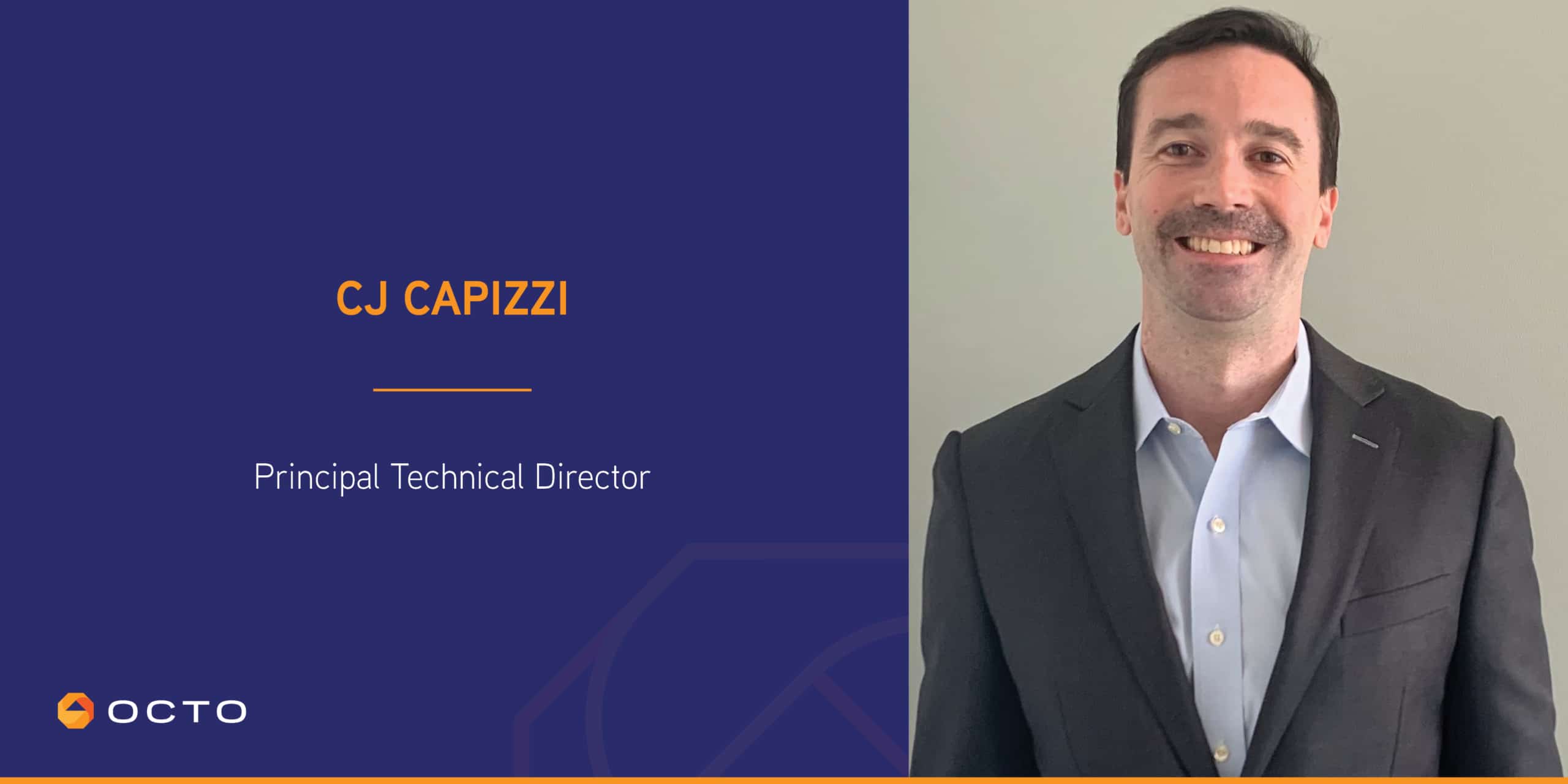
By CJ Capizzi, Principal Technical Director
Quick! Assemble a team of our most capable architects, full stack engineers, and designers. We need to get a working prototype turned around for our agency tech challenge response in the next seven days!
Does this scenario sound familiar? For most IT companies serving federal customers, it’s increasingly occurring during the pursuit of technology-forward opportunities, such as those with the General Services Administration (GSA) and U.S. Citizenship and Immigration Services (USCIS). In government procurement, it’s called a technical challenge – the request for a proposed solution to a real agency problem or demonstration of company capabilities, presented in person, through video, or via other media. The tech challenge marks the departure from what traditionally was a demand for a 25+ page written technical responses in proposals.
There are some excellent reasons for this change. Recognizing the emerging trend of technical challenges years ago, we at Octo have successfully participated in a number of them across a variety of federal agencies. Our success, including recent wins at the Treasury Alcohol and Tobacco Tax and Trade Bureau (TTB), has demonstrated Octo understands what agencies need and when and how they need it. But perhaps just as important is understanding the why and what behind the tech challenge ask.
Benefits of tech challenges in government proposals
Many agencies have recognized that instead of having vendors simply respond with a write-up about their industry leading best practices and approaches, they would rather see them in action, which is the basis of a technical challenge. After all, prompt, effective, real solutions are needed to help agencies meet their missions. By being required to complete a technical challenge as part of a proposal, contractors are called to prove they can problem solve in short periods of time and do so with accuracy while respecting budget. This process holds several benefits, including:
1. Assembling teams – As a critical component to ramping up a new contract and transition activities, agencies want to see if vendors can quickly assemble a qualified team and begin to deliver value immediately. Given the aggressive timeframes for most tech challenges (just a few days to a few weeks) this greatly tests both a vendor’s internal resourcing/staffing processes as well as their ability to organize and launch teams.
2. Capabilities demonstration – Agencies want to be able to kick the tires on a prototype solution or interact with the potential contracted team to dive deeper into their background, approaches, and/or design decisions. Tech challenges help validate the quality of vendor deliverables, such as production ready code, versus the agency simply taking the contractor’s word their solutions will work.
3. Streamlined evaluations – Instead of reading fifty 25+ page technical responses back to back, wouldn’t it be more palatable to review a working prototype or five-minute video from each bidder? The move to more interactive proposal deliverables cuts down on all too common evaluation fatigue and builds more confidence in the vendor’s ability to deliver on proposed approach.
4. Innovation – Tech challenges empower vendors to develop differentiated solutions to solve agency problems leveraging emerging technologies and/or industry leading practices at no cost to the government. This is a great opportunity for the government to bring challenges that they don’t know the best way to solve to industry and evaluate tangible solutions without having to spend a dime, ultimately lowering vendor selection risks.
5. Win-win – As these approaches become more universally adopted, both the government and vendors serve to benefit. Agencies are achieving a higher degree of confidence in vendor selection, and vendors are being provided the space to (tangibly) showcase how their innovative solutions can deliver value in solving real customer challenges.
Types of tech challenges
Now that you have a sense of why tech challenges have become preferred over written proposals, let’s dive into the different variations agencies are using. These variations can include but are not limited to the following:
- Hackathons – Sometimes referred to as coding challenges, hackathons have bidding vendors rapidly assemble a team to deliver a working product or prototype that satisfies a limited set of business objectives or defined features. Hackathons can last from as little as an hour to one month and can include various parameters around team size, technologies, and access to subject matter experts. Oftentimes bidders may be required to conduct a short demonstration with Q&A to provide a deeper look into the solution. Bidding vendors might also be required to give access to the code repository for the agency to evaluate code quality and design.
- Design challenges – Coming just short of delivering a working prototype, design challenges have bidders create the technical architecture and/or user interface/user experience (UI/UX) design for a real or mock scenario. These challenges typically require the turnover of proposed design deliverables (e.g., UI mock-ups or technical architecture design) and are often accompanied by the demand for bidders to produce a short video or presentation to highlight the approach and rationale for decision making.
- Case studies – Case studies deviate from the typical past performance or corporate experience format in that many case studies involve showcasing the end product or deliverables created over the course of the project. This provides a more concrete sense of the quality of work and is a nice complement to a description of the approaches applied and results achieved. Case studies may involve some combination of a written response, video, access to the product/tool, work products (e.g., code repositories), and/or an interactive presentation.
As you can see, while tech challenges are becoming more prevalent, varieties of formats and requirements can differ between agencies. However, all are marked by the need for efficiency, accuracy, and innovation.
At Octo, we’re always up for a challenge! We look forward to demonstrating innovation and value. Don’t hesitate to ask for a product demo or a new prototype. We’re here to answer the call quickly, providing top tools and talent essential to your federal agency’s mission.


